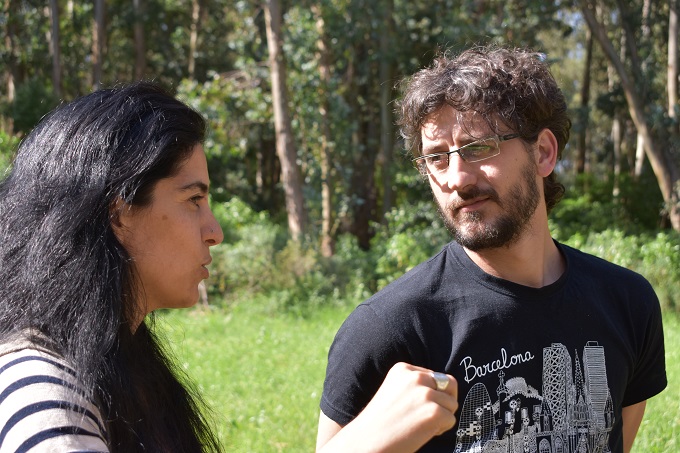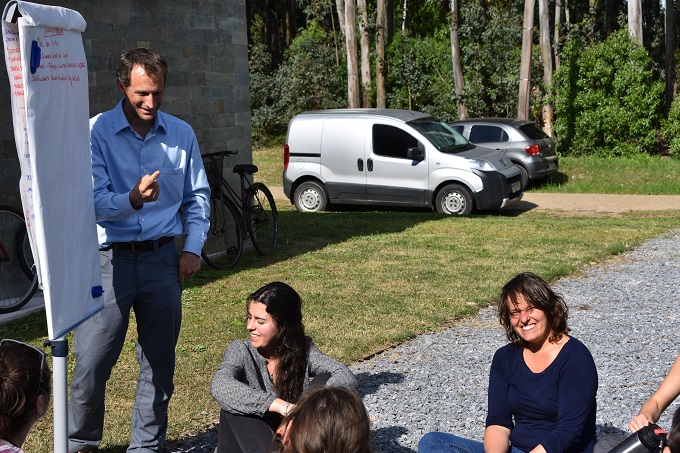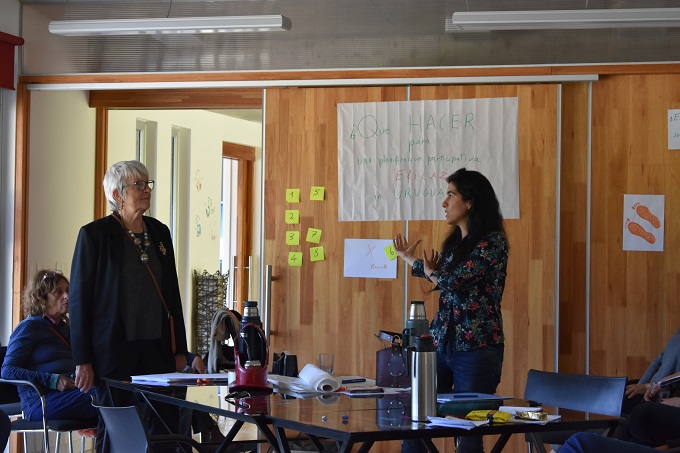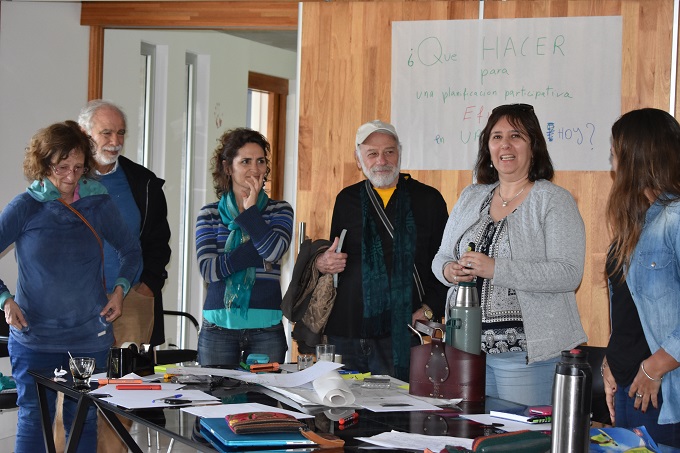The course on collaborative territorial planning and ecosystem services will be held again in 2018

The course were taught by the University Center of the Eastern Region (CURE-UdelaR), the Faculty of Architecture, Design and Urbanism – University of the Republic (FADU) and SARAS Institute.
The course promoted the integration of new approaches and methodologies related to territorial planning in Uruguay. It was a blended learning course: online classes on national and international concepts and experiences, and a three-day workshop at the SARAS Institute facilities.
Collaborative Territorial Planning and Ecosystem Services was held in September and October 2017. Participants from various backgrounds and areas of action were selected with the aim of having a greater exchange between academic research and work experience at the territory level. The quota of 40 people was formed by advanced students of different courses of the University Center of the East Region and the University of the Republic, researchers, specialists from several State agencies, civil society, and informal groups.
The course ended with a face-to-face workshop held on October 5 – 7 at the SARAS Institute. Marianella Sclavi (Polytechnic of Milan), Thomas Angotti (City University of New York – Fulbright International Expert) and David Plumb (Consensus Building Institute) gave talks and generated innovative work dynamics for conflict analysis in the territory and their resolution. Specifically focusing on how to address the permanent conflicts that arise in the territories, from large-scale economic development objectives to sustainable local scenarios.
At the national level, participating lecturers were: Isabel Gadino (GET CURE), Adriana Goñi Mazzitelli (GET CURE), Néstor Mazzeo (CURE-SARAS), Ingrid Roche (ITU), José Sciandro (CURE).
As a result of the course, and at the initiative of the participants, the topics proposed during the workshop will be presented in 2018 as study cases for the revision of the Law of Territorial Planning and Sustainable Development (2008), 10 years after entry into force.
The number of people registered for the course greatly exceeded the student quota, which will result in a second edition in 2018.









